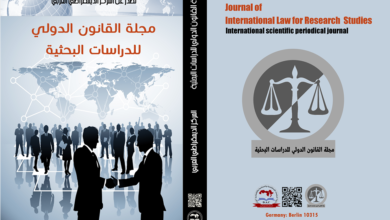
تأليف : أ.د فاطمة الزهراء سالم محمود – أستاذ أصول التربية – مصر – القاهرة
نسخة “pdf”-
فلسفة السياسة التعليمية
الطبعة الأولى “2025″ –من كتاب : فلسفة السياسة التعليمية
جميع حقوق الطبع محفوظة #المركز_الديمقراطي_العربي ولا يسمح بإعادة إصدار هذا الكتاب أو اي جزء منه أو تخزينه في نطاق إستعادة المعلومات أو نقله بأي شكل من الأشكال، دون إذن مسبق خطي من الناشر .
تقديم : –
مع اقتراب انتهاء القرن العشرين وبدايات القرن الحادى والعشرين ، وتنامى الأجيال التكنولوجية والمعرفية ، وصعود قوى للتفكير العلمى والمنهجى في العلوم الكونية ، والفضاءات والعوالم المفتوحة ، مع كل هذا بدأت أنظمة التعليم تسير وفق الركب، والتطورات الحادثة منذرة بأهمية التغيير الحتمى في السياسات التعليمية التقليدية ، والتأصيل لسياسات تعليمية أكثر قدرة على التحدى والمواجهة ، والتكيف مع عصر المعرفة والتكنولوجية وما بعد الحداثة .
ومن أجل هذا الغرض دشنت العديد من الدول المؤتمرات ،والتقارير العالمية التي تؤكد على حتمية تغيير سياسات التعليم لرسم مستقبل أفضل وأرحب للأجيال القادمة .ولهذا يقدم الكتاب الحالي أفكاراً أصولية حول السياسات التعليمية ومنهجيتها ، وطرائق تصميمها ورسمها ، وأنماط التفكير في رسم السياسات التعليمية سواء التفكير العقلانى المنطقى أو التفكير المأزوم . كما يناقش الكتاب عملية اتخاذ القرارات التعليمية بناء على السياسات التعليمية ،وتأثيراتها الحالية والمستقبلية على الأجيال المتعاقبة . كما يتعرض الكتاب لمناقشة لامنهجية السياسات التعليمية والقرارات المغلقة ، وكيف أن الأجيال الناشئة ستصبح ضحايا للسياسات التعليمية الخاطئة.
لهذا فالكتاب يستهدف السياسات التعليمية وفلسفتها من أجل فهم أعمق لعمليات صنع السياسات التعليمية بطرائق علمية ومنهجية وسياقية ترتبط بظروف كل مجتمع واحتياجاته التعليمية والثقافية والمعرفية والاجتماعية والاقتصادية .
لهذا تناولت الكاتبة عرض لتقارير عالمية عن السياسات التعليمية في بلدان متنوعة ، وآراء كثيرة للعديد من المتخصصين في السياسات التعليمية في العديد من الدول ، وأيضاً تجارب العديد من الدول في صنع السياسات التعليمية .
Abstract
As the twentieth century approached its conclusion and the dawn of the twenty-first century beganaccompanied by the emergence of successive technological and informational generations, the rise of scientific and systematic modes of thinking in the natural and cosmic sciences, and the unfolding of open spaces and globalized realities—educational systems across the world commenced a transformative journey to align with these profound changes.
These developments signaled an imperative: the need for an inevitable shift away from traditional educational policies toward the establishment of more dynamic, responsive, and forward-looking policy frameworks that are capable of meeting the challenges of the knowledge age, the digital era, and the postmodern condition.
In pursuit of this objective, numerous nations have convened international conferences and produced comprehensive global reports emphasizing the necessity of reforming educational policies to secure a better and more inclusive future for forthcoming generations.
Accordingly, this book presents foundational and philosophical perspectives on educational policies, their conceptual frameworks, and methodologies of formulation and implementation. It examines the cognitive and strategic dimensions of policy development—ranging from rational-logical approaches to those shaped by crises and constraints. Furthermore, the book addresses the intricate process of educational decision-making in light of established policies and investigates their long-term repercussions on current and future generations.
A significant portion of the discourse is dedicated to the critique of un-methodological policy practices and insular decision-making models, emphasizing the extent to which younger generations may be adversely affected by flawed or shortsighted educational decisions.
This work thus aspires to explore the philosophy underpinning educational policy-making in depth, advocating for scientifically grounded, methodologically sound, and contextually appropriate approaches that are tailored to the specific educational, cultural, epistemological, social, and economic needs of individual societies.
In pursuit of this aim, the author draws upon a wide array of international reports concerning educational policies, incorporates diverse perspectives from leading experts in the field across different nations, and reviews the experiences of several countries in the formulation and execution of their educational policy agendas.
الناشر: المركـز الديمقراطي العربي للدراسات الاستراتيجية والسياسية والاقتصادية – ألمانيا – برلين
Democratic Arabic Center- Berlin – Germany





